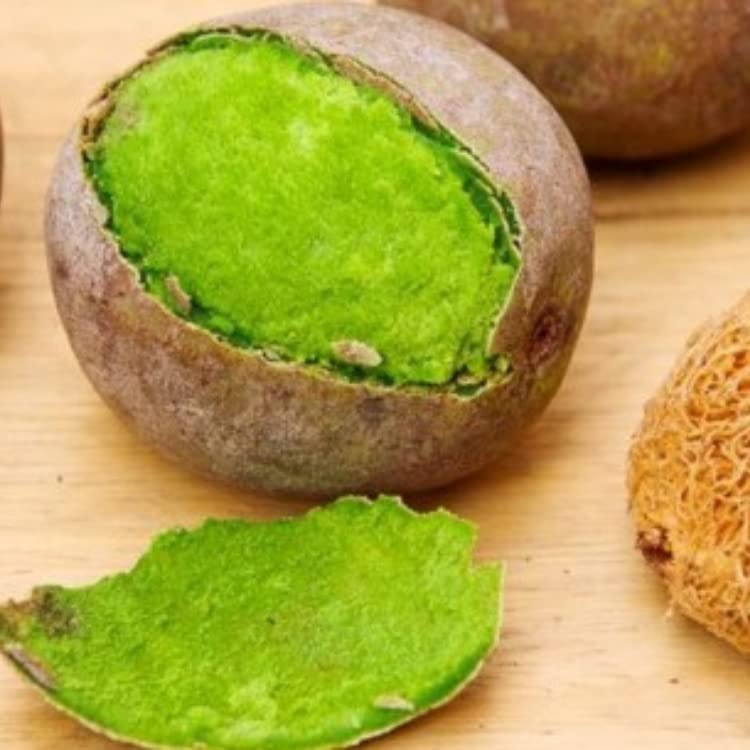By
Ify MGBEMENA
Detarium senegalense, commonly known as African velvet tamarind or sweet detar, is a species of flowering plant in the family Fabaceae. It is native to West and Central Africa. The fruit of Detarium senegalense is often referred to as sweet detar, and it is used for its edible pulp, which is sweet and sour in taste. The fruit is consumed fresh, dried, or processed into various products like jams and beverages. Additionally, the tree has cultural and economic significance in the regions where it is found.
Sweet detar (Detarium senegalense) is known to offer several potential health benefits:
Nutrient Rich: The fruit of sweet detar is rich in nutrients like vitamins (such as vitamin C), minerals (like calcium and iron), and dietary fiber, which can contribute to a balanced diet.
Antioxidants: Sweet detar contains antioxidants that help protect cells from oxidative stress, potentially reducing the risk of chronic diseases.
Digestive Health: The dietary fiber in sweet detar can aid in digestion, promote regular bowel movements, and support gut health.
Immune Support: Vitamin C, present in sweet detar, is essential for immune system function and may help the body defend against infections.
Heart Health: The fiber and antioxidants in sweet detar could contribute to heart health by helping to manage cholesterol levels and promoting healthy blood vessels.
Bone Health: The fruit contains minerals like calcium and phosphorus, which are important for maintaining strong and healthy bones.
Blood Sugar Regulation: Some research suggests that the fiber content of sweet detar may help regulate blood sugar levels, potentially benefiting individuals with diabetes.
Weight Management : The fiber in sweet detar can contribute to a feeling of fullness, potentially aiding in weight management by reducing overeating.
Traditional Uses: Sweet detar has been used traditionally in some cultures for its potential medicinal properties, such as treating diarrhea, stomachaches, and respiratory issues.
Here are some fun facts about sweet detar (Detarium senegalense):
• The outer skin of the sweet detar fruit has a velvety texture, which gives it the common name “African velvet tamarind.”
• The pulp of the sweet detar fruit has a unique combination of sweet and sour flavors, making it a popular choice for both snacking and culinary uses.
• In African cultures, various parts of the sweet detar tree, including the fruit, seeds, and bark, have been used for traditional medicine and cultural practices.
• The sweet detar tree is sometimes referred to as the “Tree of Life” due to its many uses. In addition to its edible fruit, the wood is used for carpentry, and the leaves and bark have been used for various purposes.
• Sweet detar has economic significance in some African communities, where it is harvested and sold as a source of income.
• Sweet detar is native to the Sahel region of West and Central Africa. It thrives in dry, arid climates and is well adapted to such environments. Sweet detar has been consumed for centuries and has a rich history in African cultures, where it holds both nutritional and cultural importance.
• The sweet detar fruit is a favorite among various wildlife species, including birds and mammals, which play a role in dispersing its seeds.
• In some cultures, sweet detar is used in traditional ceremonies, rituals, and social gatherings, often symbolizing abundance and hospitality.
• Due to habitat loss and overharvesting, the sweet detar tree is considered vulnerable in some regions. Efforts are being made to conserve and protect this valuable species.
• Sweet detar can be used in a variety of culinary preparations, such as jams, chutneys, sauces, and beverages. It can also be eaten fresh or dried as a snack.
• The bark of the sweet detar tree has been used as a natural dye, producing shades of red and brown for textiles and crafts.

